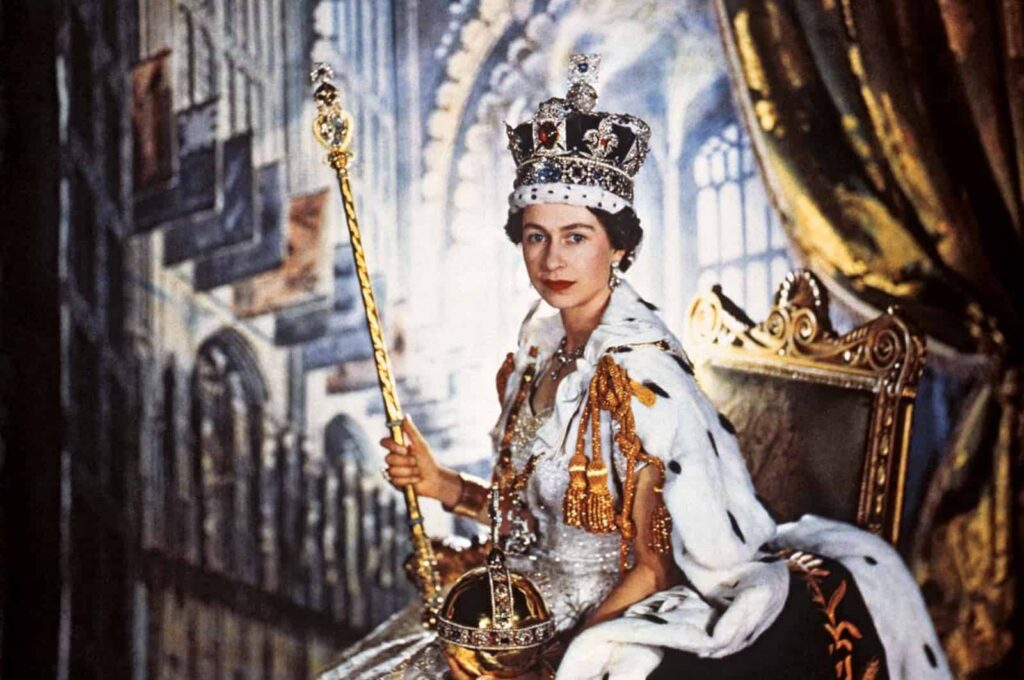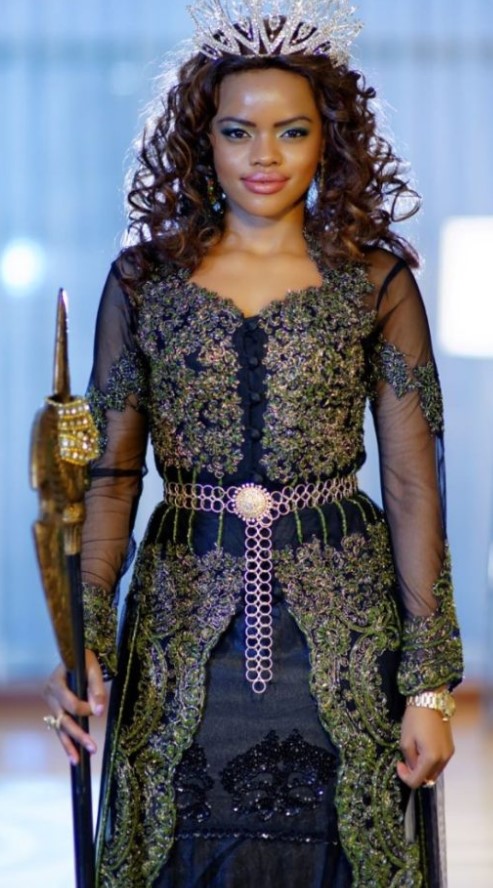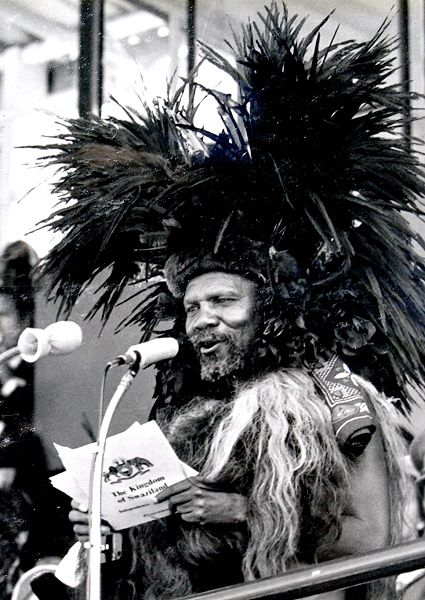.
At a 1982 screening of the movie Gandhi, the contradictions faced by people of color raised under colonial rule were all too evident. During a scene where Indians stage a lie-in to protest the British, and soldiers from the Crown attempt to ride over them, a Jamaican moviegoer bellowed into the dark, cavernous theater, “Those damn Brits. Even the horses know not to trample on people!”
A few scenes later, when a group of British expatriates sing “God Save the King,” that same Jamaican absentmindedly joined in, singing boisterously what had been her anthem for years before it was replaced by “God Save the Queen” in 1952 and, ultimately, “Jamaica, Land We Love” in 1962.
Months later my amusement about the Jamaican’s response to the film was replaced by puzzlement, even sadness, when the actor Ben Kingsley won an Academy Award for Gandhi. Kingsley gave an acceptance speech in which he did not acknowledge his Indian background (he was born Krishna Pandit Bhanji) nor did he even mention the name of one of the most revered activist-humanitarians of all time whom he portrayed for the win. Self-erasure at its highest.
We are a confused people, straddling the worlds of the colonized and the colonizer, so evident in in the tentative responses offered over the last several days as the world prepares to bury England’s longest serving monarch and to grapple with her significance—or lack thereof.
In 1979 Queen Elizabeth II visited Malawi, the former colony where my parents and I were living at the time. Excitement buzzed throughout the country, especially among the British expatriates, and even among Black American friends of ours who worked for USAID. They happily made plans to line up to wave at the monarch as her motorcade rode by and seemed concerned when they couldn’t engage my parents.
Mom and Dad, whose rural Jamaican upbringing included missing school to line the streets during visits from British dignitaries, displayed no interest in this event. They had bad memories of waiting in the sun for British officials, who had inevitably nodded off from heat exhaustion by the time they got to the little bands of schoolchildren. Standing in the streets for hours to glimpse Queen Elizabeth II at this late stage in their lives was a hard “no” for my parents. We all stayed home.
H. Kamuzu Banda, then president of Malawi, had been jailed by the British as he lobbied for independence in the 1950s. As his age advanced, he would recount on weekly radio broadcasts (often repeating himself) his experiences with the colonialists who attempted to cut deals in their own favor. “We don’t need your stupid federation. We want liberation now now now!” he would yell as he banged his desk.
But H.E., as the Malawians affectionately called him, of course played the gracious host to Queen Elizabeth II and her younger son, Edward. Revenge is a dish best served with an elaborate state dinner as you preside over the nation whose independence you have won, with representatives from the entity from which you have won it as your guests.
I don’t dispute that Queen Elizabeth has been a constant in the world. There is a stat that nine out of ten people on this earth have known of no other English monarch. I just state the obvious, that the colonial history that goes with if not her reign than the reign of her predecessors—and is the source of her tremendous wealth—must be examined.
In the upcoming weeks, members of the Commonwealth must make informed decisions about their future in the association. The leaders of some of those nations must decide whether Charles, a man who publicly berated his first wife, privately ridiculed her for having an eating disorder, and committed adultery, should succeed his mother as their monarch, flanked by his former mistress as Queen Consort.
The countries must decide if they can continue business as usual, without demanding reparations and the return of cultural artifacts and prize jewels from the British monarchy. (I was taken aback to see the Imperial State Crown on display on Wednesday as Queen Elizabeth’s funeral procession made its way to Westminster Hall. Calls have begun from Indians and Southern Africans for the return of the pillaged stones that give the crown its glory.)
I encourage Black people who are monarchy-obsessed to do some research on African kingdoms, starting perhaps with eSwatini in southern Africa. There the current slate of royals do what royals do the world over: live off the people. Favorite royal daughter, Princess Sikhanyiso Dlamini, the eldest of King Mswati’s 36 children, is the Minister of Communication and Information Technology.
She is known for the lavish lifestyle she led as a student abroad, and for a fledgling rap career that she pursues in between her advocacy for girls and the hearing impaired. When the princess spoke out against polygamy several years ago, the palace (her father) placed her under a temporary gag order. Sikhanyiso, back in the king’s favor, most likely will be in London next week dressed to the nines for Queen Elizabeth’s funeral. along with royals from a host of nations, some developed some not.
It is not well known that the monarchies that the British establishment did not destroy or diminish by labeling them paramount chiefdoms remain in an international clique of sorts that once included Princess Sikhanyiso’s grandfather, King Sobhuza II.
Much less flashy than the current generation and certainly much more development minded, King Sobhuza II is the longest reigning monarch in recorded history (82 years).
He balanced western influence with his love for his own culture and was said to be most at home in his traditional residence, a kraal, dressed in a leopard-skin loincloth. Most important, he oversaw the transfer of land and mineral resources from foreign interlopers back to indigenous control.
My parents and I lived in Swaziland in the early 1970s, and King Sobhuza II is the first monarch I had any real consciousness of.
In 1972 My family and I went to the kingdom’s fourth independence celebration. Although he was fluent in English, the king gave a formal speech in his language, SiSwati, which was translated into English, inspected his troupes, and danced with his warriors. We took in the festivities from the comfort of assigned stadium seats.
A story from my childhood best sums up how I feel about any monarchy that might be clouded by violations of human rights or the pillaging of resources at home or abroad: in 1975 Queen Elizabeth came to Jamaica on one of what would ultimately be six visits to the island nation. A neighbor offered to take two of my cousins to line up on the streets of Kingston to wave to the monarch.
My uncle arrived home just in time to see his children, dressed in their Sunday clothes, heading out the door. “We’re going to see the Queen!” one of my cousins told his father. “Your queen is in the kitchen making your dinner. Get back inside!” my uncle commanded.




You must be logged in to post a comment.